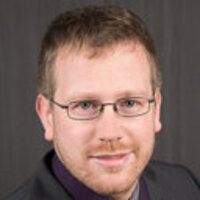Menu
- About
- Education
- Research
- Engagement & Collaboration
- News & Events
Back to Top Nav
Back to Top Nav
Back to Top Nav
Back to Top Nav
Ralph Behrend, Research Associate, Technical University Bergakademie Freiberg, shares recent research as part of the New Energy series.

Join us for our next New Energy: Conversations with Early-Career Energy Researchers talk as Ralph Berhend, Research Associate at the Technical University Bergakademie Freiberg, gives a talk, "Microwaving Glass: Harder Than We Thought," about his recent research.
About the Talk
Industrial heating is responsible for around 1/3 of the world’s energy demand. Most of the necessary heat is supplied by combustion of natural gas, coal, and oil. For carbon neutral production a retrofit to renewable heat sources will be key. While hydrogen as replacement fuel could be possible, it would be even better to go all electric. But high temperature processes are hard to retrofit with conventional electric heaters. For some processes, like glass melting, microwave heating is a viable alternative: It enables high energy densities, extremely fast heating, and high temperatures. It is also very complicated to implement on large scale and it is hard to implement.
About the Speaker
Ralph Behrend is a Research Associate and work group leader for thermo process engineering at the professorship for gas and heat technology at the Technical University Bergakademie Freiberg. He received his Ph.D. in mechanical engineering from the Technical University Freiberg in 2023. Ralphs research is centered around high temperature processes of all kinds. Microwave heating has been part of his portfolio since his master thesis and has become the basis for glass melting applications, CFRP recycling and more. Other research includes refractories and insulation materials in high temperature processes and gasification and pyrolysis processes.
Learn more about the New Energy series and program here.
Events are free and open to the public unless otherwise noted.